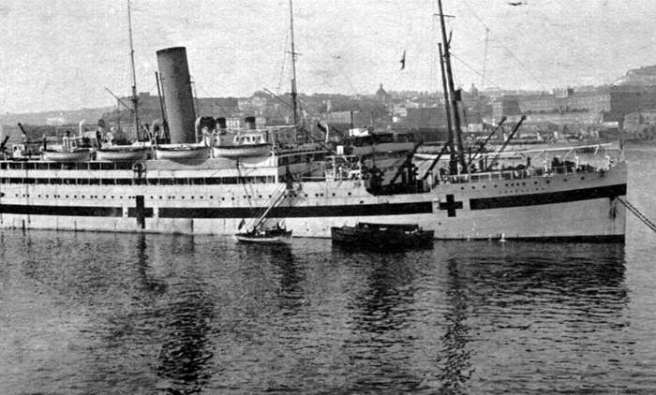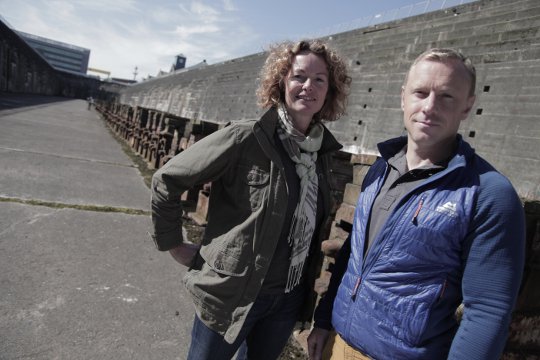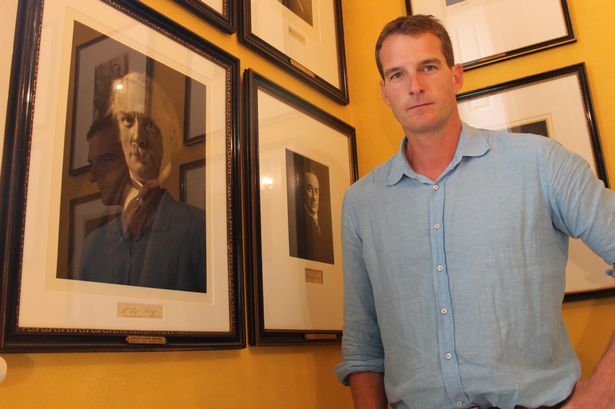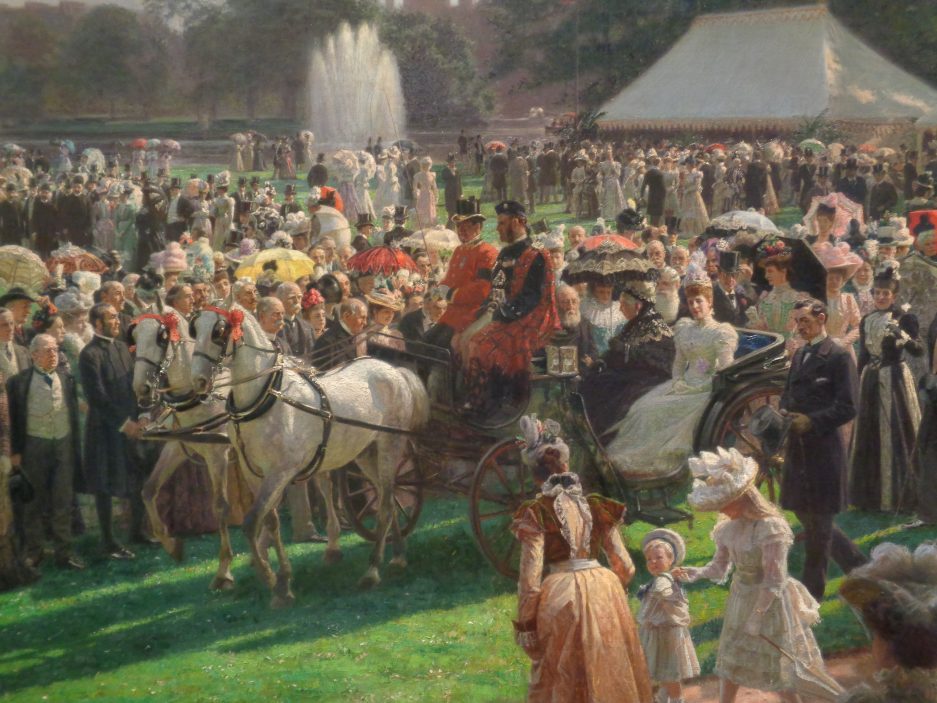Celebrations for the First World War centenary continued in 2016 with events and new books published commemorating and observing the centenaries of the Battles of the Somme and Jutland. It is therefore unsurprising that media attention was focused on the two main events – especially the Battle of the Somme owing to the number of lives lost and its significance to British history and the British psyche.
However, there are also two events that are also significant in their own way but have been overlooked and even forgotten. 1916 also saw the sinking of the hospital ship Britannic and David Lloyd George becoming prime minister, but unlike the Somme and Jutland, the sinking of the Britannic has been forgotten and Lloyd George is almost unknown. Why both have been consigned to near or full obscurity is something the BBC has attempted to address and rectify with two documentaries – Titanic’s Tragic Twin: The Britannic Disaster and Dan Snow on Lloyd George: My Great-Great Grandfather.
HMS Britannic was a hospital ship that began life as the sister ship to the ill-fated Titanic. So much has been written about the Titanic especially the circumstances of her sinking in 1912 that it has overshadowed the story of the Britannic. When the Titanic sank in 1912, Britannic was still being built, so both Harland and Wolff and the White Star Line decided to modify her design by adding a second watertight compartment and adding more lifeboats to avoid another disaster on the scale of 1912. Upon the outbreak of the First World War, Britannic was requisitioned as a hospital ship and by 1916 had already taken part in five missions transporting wounded soldiers from the front back to the UK. On November 1916, Britannic undertook what was to be its final mission before she sank – to go to the Mediterranean to collect the wounded who had been stranded in the aftermath of the Gallipoli campaign. But on 21 November, tragedy struck when the ship hit a mine and the Britannic sank in just under an hour with 30 people dead.

The documentary was an attempt to piece together what had happened and this was done through the records of some of the survivors, including Charles Bartlett, the captain of the ship; Archie Jewell, a Britannic crew man; Violet Jessop, a White Star Line stewardess who also survived the Titanic and Sheila Macbeth, a nurse assigned to the Britannic. There were also interviews with descendants of the above but what was baffling was the presenter Kate Humble asking the descendants whether they ever “got a sense of what it was like on the day the ship went down”. Such a pointless question, on a par with a journalist asking disaster survivors ‘and how did you feel?’ – and one that didn’t have to be asked if the production had stuck to the story – from the accounts, the sinking of the Britannic was every inch as dramatic as the Titanic. Captain Bartlett was still hoping to avoid the ship being sunk by heading towards the nearest island but it proved to be futile. In the end, bad luck and human error resulted into the sinking with the loss of 30 lives. Overall, Titanic’s Tragic Twin: The Britannic Disaster was a wasted opportunity for viewers to learn more about the Britannic and the important role played by ships such as these for the war effort, and a superb example of how history increasingly is dumbed down and trivialised for mass appeal.

TV historian Dan Snow is on the trail of his great-great-grandfather David Lloyd George (fun fact: he’s descended from the older of Lloyd George’s two daughters Olwen), seeking to find out more about his ancestor including skeletons in the cupboard that his family would rather not talk about, and why despite the fact that he won the First World War for Britain, he has been overshadowed by his friend Winston Churchill who achieved the same feat during the Second World War. His journey takes him to North Wales where David Lloyd George grew up (and a young Dan Snow spent his holidays with his grandparents), to London where his political career grew from the strength to strength – ultimately achieving the premiership and Paris where he played a pivotal role in drafting the peace treaties that ended the First World War.

Snow tries to assess Lloyd George’s life and career in a balanced way and with this documentary he has pretty much succeeded. He examines his great-great-grandfather’s rackety private life – a popular schoolboy song in the early 20th century went “Lloyd George knew my father/Father knew Lloyd George” which was thought to be a reference to his slippery character. Early in his political career he was cited as a co-respondent in a divorce case. Whilst this did not ruin his career, it taught him the necessity of taking a leaf out of the aristocracy’s book and conducting his infidelities with discretion. As Chancellor of the Exchequer, Lloyd George had begun an affair with his youngest daughter’s governess (later his secretary) Frances Stevenson and despite her desire for marriage and family she acquiesced in remaining his mistress and even underwent an abortion so as not to jeopardise his marriage to his wife Margaret. Margaret Lloyd George just like Queen Alexandra played her role too, condoning the affair so long as it did not threaten her own relationship with her husband.
While Lloyd George helped lay the foundations of the modern welfare state as Chancellor of the Exchequer, his greatest success was as Minister for Munitions and as Prime Minister where he introduced a number of innovations that were used again during the Second World War – such as the establishment of a war cabinet and ensuring that minutes were taken. He was also responsible for the idea of bringing in outside experts to help keep the business of the war economy ticking and reached out to the Empire as well, recognising the value of the member countries’ contribution to the war effort. He was seen as a contrast to his predecessor Herbert Asquith, whose languid ways and refusal to change his governing style as the war dragged on played a factor in Asquith being forced out of office in 1916.
Lloyd George was one of the key players during the Paris Peace Conference but the enthusiasm for peace quickly soured as the war economy wound down and the government was faced with millions of unemployed servicemen and women who were forced to step aside once the war was over. His leadership style which suited the war years did not translate well into peacetime and in 1922 he resigned and although he continued to sit in Parliament, never again was he to hold any position of power.
The documentary is not without its weaknesses. Much is made out of Lloyd George’s status as an outsider and fair enough that was the focus especially with regards to his early career but with regards to his relationship with Field Marshal Douglas Haig and King George V, the usual explanation of “establishment vs. outsider” is clichéd and simplistic. Snow could have made more of World War 1 being a war unlike any other and how each of the three men approached the handling of the conflict rather than resorting to the well-worn and overused class based narrative.
Over all Dan Snow on David Lloyd George is an interesting and informative documentary and in the end as Snow himself acknowledges, his great-great-grandfather was not a hero in the classic sense, just a man capable of both greatness and failure.
Titanic’s Tragic Twin: The Britannic Disaster was telecast on 5 November 2016 on BBC2
Dan Snow on David Lloyd George: My Great-Great-Grandfather was telecast on 7 December 2016 on BBC1 Wales.
